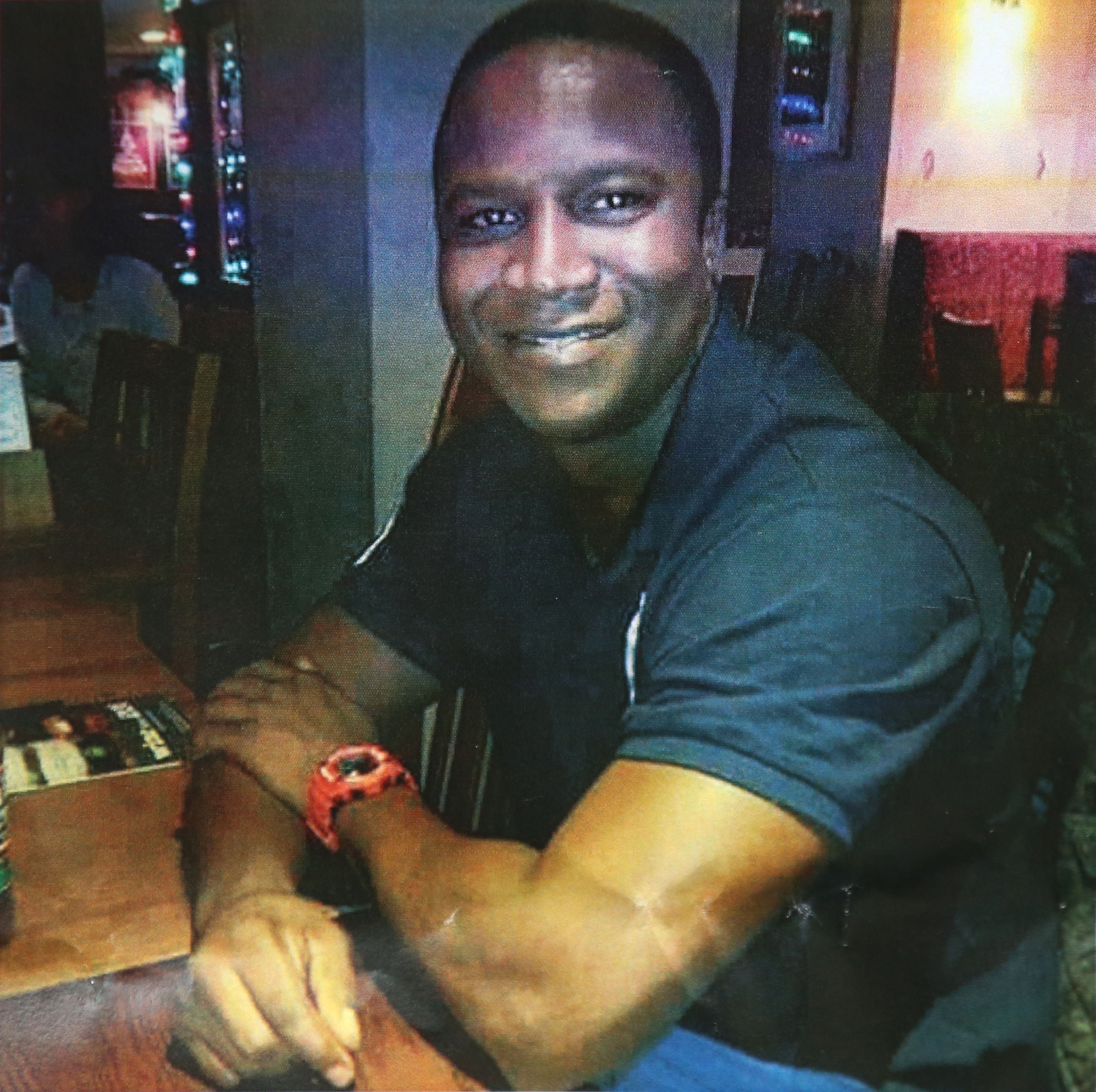No undertakings granted for police witnesses in Sheku Bayoh inquiry
The 31-year-old died in May 2015 after being restrained by police officers.

Your support helps us to tell the story
From reproductive rights to climate change to Big Tech, The Independent is on the ground when the story is developing. Whether it's investigating the financials of Elon Musk's pro-Trump PAC or producing our latest documentary, 'The A Word', which shines a light on the American women fighting for reproductive rights, we know how important it is to parse out the facts from the messaging.
At such a critical moment in US history, we need reporters on the ground. Your donation allows us to keep sending journalists to speak to both sides of the story.
The Independent is trusted by Americans across the entire political spectrum. And unlike many other quality news outlets, we choose not to lock Americans out of our reporting and analysis with paywalls. We believe quality journalism should be available to everyone, paid for by those who can afford it.
Your support makes all the difference.Scotland’s Solicitor General has said she cannot guarantee that evidence given by certain police witnesses in the Sheku Bayoh inquiry will not be used against them in any future prosecution.
A public inquiry is examining events surrounding the death of the 31-year-old in May 2015 after he was restrained by police who were responding to a call in Kirkcaldy, Fife, and will begin evidential hearings in May.
The inquiry asked the Crown to give undertakings to 12 named officers that it will not use any evidence they provide against them in any prosecution which might arise over the events surrounding Mr Bayoh’s death, and the post-incident management.
However, Solicitor General Ruth Charteris QC said she is not satisfied that it is in the public interest to grant that request.
She said: “I respect the request from the inquiry and the views of the core participants in relation to this.
“Prosecutors must consider all cases on their individual facts and circumstances and act in the public interest.
“I have considered all the information available to me, and I am not currently satisfied that it is in the public interest to grant the undertakings.
“It is not known if officers will invoke their right to claim privilege against self-incrimination.
“Nor is it known what impact any such claim would have on the totality of the evidence available to the inquiry.
“I will give individual consideration to any future request for an undertaking should it become clear that the inquiry will be prevented from fulfilling its terms of reference.”
Lawyers for the Scottish Police Federation and officers involved in the case previously said they wanted an undertaking that no evidence given to the inquiry by any officer would be used against them in any criminal proceedings, or when deciding if they should face prosecution.
A preliminary hearing for the inquiry earlier this year heard that without such an undertaking some officers could refuse to answer questions about Mr Bayoh’s death.
The inquiry is fully committed to ascertaining the truth of how Sheku Bayoh died on 3 May 2015
Lord Bracadale had also sought an undertaking from Fiona Taylor, Deputy Chief Constable of Police Scotland, that she would not seek to rely on evidence given to the inquiry by an officer in any future disciplinary proceedings against that officer arising from the events of May 3.
She declined to give such an undertaking.
The Deputy Chief Constable said Police Scotland will co-operate with the inquiry, but that she has to balance the request from the inquiry against “competing public interests”.
Ms Taylor said: “A clear and significant public interest is the maintenance of a disciplinary regime to ensure public confidence in policing.
“Police officers should not and do not need to seek assurances from me in relation to giving full and frank testimony to the public inquiry. They have a duty to do so and the public expects it.
“In addition, given that the Solicitor General has decided not to provide an undertaking in relation to potential criminal prosecution, I have to consider my own legal obligations under the 2014 Conduct Regulations, which require me to refer any matter to the Crown Office and Procurator Fiscal Service which may infer criminality on the part of a police officer.
“Therefore, I have declined to give an undertaking.”
Lord Bracadale said: “I acknowledge the decisions of the Solicitor General and Deputy Chief Constable, published today, in respect of the request for undertakings.
“It is a matter entirely for the Solicitor General and Deputy Chief Constable whether or not to give the undertakings sought. I note that the Solicitor General has left open the possibility of revisiting the issue of whether to give undertakings on an individual basis to officers involved.
“Consequently, I will now seek statements from each of the officers to ascertain how much information they are willing to provide to the inquiry without undertakings from the Solicitor General. Once those statements have been obtained by my team, I will assess how best to proceed.
“The inquiry is fully committed to ascertaining the truth of how Sheku Bayoh died on 3 May 2015 and will keep all options open with a view to retrieving the fullest possible evidence in relation to events that day.
“The inquiry has already obtained statements previously provided by the officers as part of more than 30,000 pieces of evidence currently being considered.”